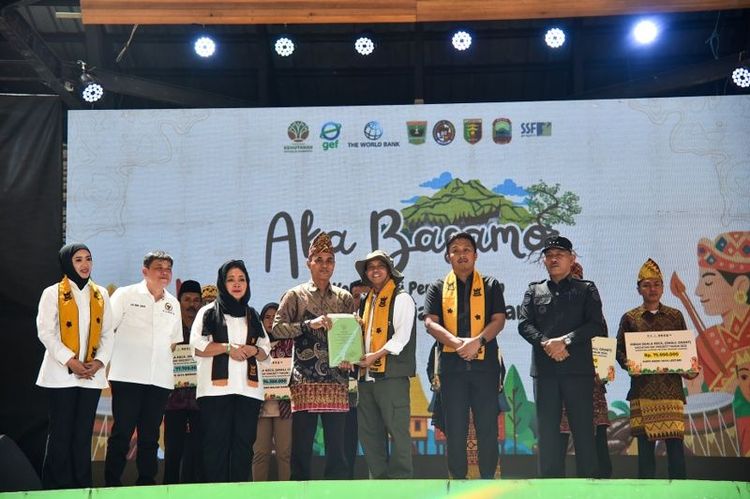
Product walkthrough, trial, POCs, enterprise offering, support and more. Speak with one of our specialists.


Product walkthrough, trial, POCs, enterprise offering, support and more. Speak with one of our specialists.

Policy and industry News

Social Forestry now carries deeper meaning as a source of hope for communities living near forests. The program has been officially reinstated as a National Strategic Project (NSP) by President Prabowo Subianto. This move is believed to open more economic opportunities for rural communities around forests while strengthening efforts to preserve Indonesia’s natural environment.
This commitment was affirmed directly by Minister of Forestry Raja Juli Antoni and Chair of Commission IV of the House of Representatives Siti Hediati Soeharto during the Social Forestry Showcase of the SSF Project themed "Aka Basamo" in Lima Puluh Kota Regency, West Sumatra.
“In the past, people could only see the forest from a distance, now they are invited inside. Not just to preserve it, but also to utilize it for their welfare,” said Minister Raja Antoni.
To date, more than 8.3 million hectares of forest have been legally granted to communities through 11,015 Decrees, reaching 1.4 million households. These are not just numbers—behind them are stories of families who no longer live under uncertainty, and farmers who can now smile with relief, no longer fearing being “chased by forest police.”
At this event, the tangible success of the program was marked by the first export of 8 tons of coffee from the Luhak Bungsu Cooperative to Dubai. This community forest coffee has entered the global market, proving that villages on the forest’s edge can go international.
Support from the House of Representatives goes beyond words. For the first time, forest farmers are now officially listed as recipients of fertilizer subsidies thanks to a new policy in the Minister of Agriculture Regulation No. 4 of 2025. This is a fresh breeze to boost the productivity of forest farmers.
“No more farmers fearing the forest police. Now they have legality, income, and business certainty,” said Titiek Soeharto.
Collaboration with various parties—from the Ministry of Agriculture, the Quarantine Agency, to business actors—has been key to driving a forest-based economy.
“We encourage this model to be replicated in other regions. This is a concrete program that has a direct impact on the people,” said Titiek.
The Social Forestry Showcase of the SSF Project was held to present achievements, innovations, and best practices from Social Forestry Business Groups (KUPS) from various regions. The event also served as a platform to strengthen business networks and multi-stakeholder collaboration in driving the transformation of forest-based rural economies.
This program is not only about opening forest access, but also about opening hope. Through the strengthening of Social Forestry Business Groups (KUPS), innovations and best practices have emerged from various regions, serving as inspiration for replication elsewhere.
With these concrete steps, the forest is no longer a “forbidden” area for the people. On the contrary, the forest has now become an ally that brings prosperity without losing its role as nature’s shield.






















Jejakin’s green programs combine high-tech monitoring, biodiversity restoration, and community-led initiatives to deliver powerful, sustainable change across ecosystems.








